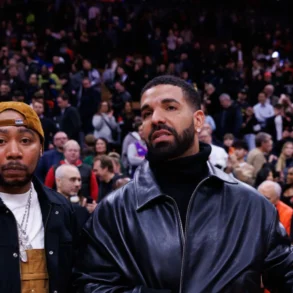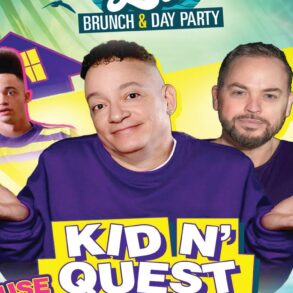An interview with the longstanding New Zealand DJ, beatmaker, and producer about dub music, his two dub reggae albums and working with Haymaker Records.
Selected Works is a weekly (usually) newsletter by the Te Whanganui-a-Tara, Aotearoa (Wellington, New Zealand) based freelance music journalist, broadcaster, copywriter and sometimes DJ Martyn Pepperell, aka Yours Truly. Most weeks, Selected Works consists of a recap of what I’ve been doing lately and some of what I’ve been listening to and reading, paired with film photographs I’ve taken + some bonuses. All of that said, sometimes it takes completely different forms.
Christopher Martin James, now better known as Christoph El Truento, was introduced to Jamaican dub music as a child during the final years of the twentieth century. Thinking back to his upbringing, he remembered finding a copy of Augustus Pablo and King Tubby’s King Tubbys Meets Rockers Uptown album in one of his older brothers’ record collections. At the time, James spent his evenings outside school flipping through the radio dial to see what he could find on the airwaves in 1990s Auckland. In comparison, the slinky sounds he heard on that record – equal parts spaced-out and low-slung – were an early revelation.
Over the next two decades, the longstanding New Zealand DJ, beatmaker, and producer made his way into his home country’s hip-hop, beats, and modern jazz scenes in a supporting role before beginning to release his own fascinating solo albums in the early 2010s through European and Antipodean record labels such as OnGravity Records, Nutriot Recordings and Cosmic Compositions. “I had to go through the hip-hop world to become interested enough to make a filing system in my head of who’s who in other genres,” he explained. “I went down the route of figuring out what songs they were sampling and getting into different styles of music from there.”
James, who was born in 1989, grew up in Auckland, the largest city in New Zealand. Surrounded by music from a young age, he was raised by a father who loved acoustic folk and a mother who encouraged creativity. He also benefitted from the familial influence of siblings who loved hip-hop, electro, dub, and reggae so much that they purchased drum machines, samplers, turntables, and mixers and started making music. After one of his older brothers gave him a copy of the PlayStation Music 2000 video game to learn how to make beats, becoming a producer and a DJ became inevitable.
In the late 2010s, after spending more time listening to music with one of his older brothers, James was compelled to dig back into dub music, dub production techniques and the stories surrounding it all. Having spent years recording and producing music in DIY home studio settings, this time around, he found himself more drawn towards the processes that underpinned the idiosyncratic Jamaican producer and artist Lee “Scratch” Perry’s vividly psychedelic experimentation. “When you look at the photos of him and some of the rare footage, his studio was a lot more barebones,” James explained. “What was doing doing seemed more approachable, in the sense that it was rooted in making do with what you’ve got.”
On the 25th of January 2019, the Cosmic Compositions label gave James’ first full-length dub album, Peace Maker Dub, a digital release. “I’d been trying to do it before then, but that was the first time that I felt like I’d made a dub record I was happy with,” he admitted. Over a cycle of tracks that displayed the depth of his knowledge of production technique turned genre, James blended laptop-based production with recordings made on tape decks, broken down amps and microphones, and other hybrid analogue-meets-digital techniques. “I used a reel-to-reel while recording the horn parts to give it that loud-hitting-tape feel before digitising it,” he said.
Opening with the watery, simple-living sounds of ‘Fishermans Dub,’ Peace Maker Dub gently boils up like a slow-cooked stew for the soul. Across its running time, James and his collaborator’s warmhearted riddims mingle with playful guitar solos, ghostly organ sounds, xylophones, folkloric percussion, tripped-out sound effects, animal noises, and rootsy vocals that feel like they’ve been transmitted from somewhere between waking life and the depths of sleep.
Prior to Peace Maker Dub, James mainly relied on his computer-based production skills to make music, plus the odd live part recorded by friends. This time around, he moved closer to the realm of full session recordings with a cast of collaborators, including his young son, his brother Eagle Master Selecto on guitar, and the New Zealand musicians J.Y Lee, Julien Dyne, Borrowed CS, Lord Echo, and Brent Overlord. “It was all people I would have been recording with them for other projects anyway,” he remembered. “I would have just asked them, ‘Can you record this for this?’”
Four years later, James contributed to Auckland broadcaster, DJ, producer, and record label owner Jim Pinckney, aka Stinky Jim’s Social Awareness EP. A collection of remixes of songs from Pinckney’s Spacial Awareness album, Social Awareness, was the inaugural release from the Waikato-based New Zealand label Haymaker Records. “Dave, who runs Haymaker, is actually a farmer,” James explained. “He just loves dub and reggae music, buys records, and is so passionate about it that he just wants to contribute by putting out records. He’s a one-of-a-kind guy.”
After James DJed at the Social Awareness release party, Dave from Haymaker Records approached him with an idea. “He asked me if I was interested in putting Peace Maker Dub out on high-quality, well-packaged vinyl through his label,” he remembered. When they met up to discuss it further, James made his own counterproposal. “I said, ‘Would you be interested in a package deal because I’ve got a new record ready to go,’” he continued. That new record was Dubs From The Neighbourhood, James’ second full-length dub album.
Released within a month of each other, the vinyl LP editions of Peace Maker Dub and Dubs From The Neighbourhood quickly reached beyond New Zealand’s borders, securing James support from crucial UK, Japanese and online record stores and tastemakers such as Lion Vibes, Dubwise Vinyl, Dubstore, Colleen “Cosmo” Murphy, Kevin Martin aka The Bug, and Steve Barker. “I’m finding my music has quite a reach with people quite a bit older than me, and I’m stoked about that,” he said. “I’m not the type to keep a huge eye on what the algorithm is doing or the stats of my music plays, but as long as I can keep a foot in the vinyl scene, the digital stuff can bubble away in the background.”
When he was recording and producing Dubs From The Neighbourhood, James found himself listening to more ska and early rocksteady, in particular, the sadly short-lived singer Keith ‘Slim’ Smith, who has been long regarded as one of the finest singers to emerge from Jamaica in the 1960s, and his fellow countryman, the era-spanning producer Phil Pratt. “He has a really haunting sound that I quite admire,” James said.
Keith ‘Slim’ Smith’s influence is abundant on ‘Performer Dub,’ which features the yearning tones of Māori soul vocalist Mara TK. “I think he was almost playing a rocksteady character on that song,” James explained. “It definitely fits into the relationship dispute topic, which is a common thread in that style of music.” Another standout on the album is ‘Pep The Conqueror.’ Having previously contributed an innocent singalong vocal to ‘Pep’s Chant’ on Peace Maker Dub, ‘Pep The Conqueror’ sees his son returning to the microphone for a series of dreamlike te reo Māori vocal refrains. ‘The tone of a kid’s voice on reggae just cuts through differently, I think,” James said.
From a New Zealand-centric perspective, the album title, Dubs From The Neighbourhood, almost feels like a reference to the old-school South Auckland hip-hop duo Sisters Underground’s breezy, urban Pasifika chart hit, ‘In The Neighbourhood’ (1994). “That definitely popped into my mind as soon as I came up with the title,” James remembered. “I liked that as a reference because I wanted to localise it. I’m inspired by Jamaican music, but I’m also always trying to make it feel like my surroundings at the same time.”
Along a similar logic, the word neighbourhood feels like another way of saying community, which is fitting as James describes the musicians and vocalists he worked with on the album—many of whom featured on Peace Maker Dub—as a “tight-knit group of people I have good working relationships with.” From his perspective, it makes for a better timestamp when you work with an honest representation of your circle of friends. “I think when I look back through the credits, it will be more meaningful this way,” he said.
Building on the playfulness, naivety, and innocence of Peace Maker Dub, Dubs From The Neighbourhood is the work of a studiously well-listened and practised producer who has managed to not just recapture the wide-eyed optimism of hearing dub for the first time as an eight-year-old but successfully balance those feelings with the weight of adult life. Simply put, it’s a masterpiece that deserves to be heard by young and old, far and wide. “I’m always trying to approach music from that childlike place,” James said. “I was making it during a time of grief after one of my brothers passed away. Dub and reggae can take sadness and give it a happy undertone. When you mix the two, it can get quite psychedelic.”
Pausing briefly, James takes a moment to reorient his thoughts before continuing. “It’s not like my experiences come anywhere near the degree of poverty or roughness that was going on in Jamaica during the 1970s, but reggae turned a rough situation into something more uplifting and joyous. Even just the way the melodies carried themselves had quite a positive or hopeful outlook. All I ever hoped was to accomplish my version of that feeling.”
Another striking aspect of Dubs From The Neighbourhood is the cover, which was designed and illustrated by the Australian multidisciplinary artist Asher McShane. Initially released in black, green, and blue print on a recycled cardboard cover before being later repressed in full colour, it depicts James’s neighbourhood of the mind with the same vitality, beauty, and joy as the music. In addition to James’ album art, McShane also designs and illustrates his gig posters, imbuing them with a similar set of feelings.
Over the last six months, James’ has been playing a series of semi-regular nightclub gigs around New Zealand, where the MCs Lucky Lance and Rubi Du sometimes join him on the microphone. “Lance and Rubi are great at communicating with the audience,” he said. “I feel like locally, they might be some of the last MCs who can step outside of performing their raps and host an evening.” James (and sometimes Lance) generally starts DJing chill music at 8 pm at these shows before dialling things up to a dancefloor tempo a couple of hours later. “Once the early evening conversations are done and the dancefloor takes shape, anything goes from there,” he enthused. We’ll play a big mixed bag of music and perform a few songs we’ve recorded together.”
On Friday, August 2nd, 2024, James and Lance are headed to Wellington to perform from open to close at the Meow venue on Edward Street for the Everything Always promotions group. Presale tickets are available for purchase here.
FIN.
This post was originally published on this site be sure to check out more of their content.






